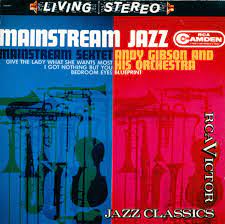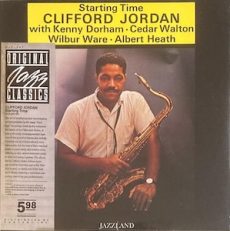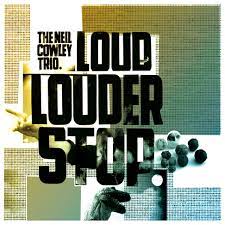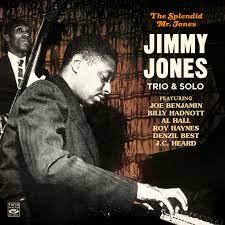Daily Dose Of Jazz…
Jan Bertil Allan was born November 7, 1934 in Falun, Sweden and began his career in 1951 as a pianist. After moving to Stockholm, Sweden he changed to the trumpet as his main instrument. At this time he played in Carl-Henrik Norin’s orchestra. In 1954 he worked with Lars Gullin and Rolf Billberg for a year followed by a four year residency starting in 1955 with Carl-Henrik Norin, shlie earning a PhD in physics.
He is considered among the most important modern jazz musicians in Sweden, despite his small number of records. For the first three years in the Sixties he led a quintet with Billberg. Throughout the decade Allan worked with Arne Domnérus, Georg Riedel, and Bengt Hallberg, among others. From 1968 to 1975, he was a member of the Swedish Radio Jazz Group.
His album Jan Allan-70, which featured Rolf Ericson, Nils Lindberg, Bobo Stenson, Jon Christensen, and Rune Gustafsson, won a Grammis Award for Jazz of the Year in 1970. His album Software, released in 1998, stands in strong affinity with the West Coast Jazz of Gerry Mulligan and Stan Getz.
Over the course of his career, he recorded albums with Alice Babs, Bosse Broberg, Benny Carter, Dorothy Donegan, Lars Gullin, Jan Johansson, Thad Jones, Roger Kellaway, Lee Konitz, Nils Lindberg, Georg Riedel, George Russell and Monica Zetterlund among others.
In 2009, he was honored with a Swedish Golden Django as a Master of Jazz. Trumpeter and composer Jan Allan, who recorded eight albums as a leader and composed for several films, continues to perform and compose.
Confer a dose of a Falun trumpeter to those seeking a greater insight about the musicians around the world who are members of the pantheon of jazz…
Jan Allan: 1934 | Trumpet, Composer
More Posts: bandleader,composer,history,instrumental,jazz,music,trumpet

Daily Dose Of Jazz…
Albert “Andy” Gibson was born on November 6, 1913 in Zanesville, Ohio. He played violin early on before settling on trumpet. He played professionally in many orchestras and though he did not solo, he worked more often as an arranger.
During the 1930s his associations include Lew Redman, Zack Whyte, McKinney’s Cotton Pickers, Blanche Calloway, Willie Bryant, and Lucky Millinder. He quit playing in 1937 to arrange and compose full-time, working with Duke Ellington, Count Basie, Cab Calloway, Charlie Barnet, and Harry James. in the United States Army he led a big band while serving from 1942-45.
After his discharge, he continued working with Barnet but turned his focus primarily on R&B music. He was musical director for King Records from 1955–60 and recorded four songs as a leader in 1959 which were released by RCA Camden. He composed I Left My Baby popularized by Count Basie, The Great Lie, and The Hucklebuck.
Trumpeter, arranger, and composer Andy Gibson transitioned from a heart attack on February 11, 1961 in Cincinnati, Ohio.
More Posts: arranger,bandleader,composer,history,instrumental,jazz,music,trumpet

Requisites
Starting Time ~ Clifford Jordan | By Eddie Carter
Clifford Jordan enters the spotlight to begin November with a wonderful 1961 quintet date called Starting Time (Jazzland JLP 52/JLP 52S). It was the tenor saxophonist’s seventh album as a leader and second on the label following A Story Tale. He was born in Chicago, Illinois, and early in his career, played with Max Roach and Sonny Stitt and was also a member of a few rhythm and blues groups. Clifford recorded three albums at Blue Note after moving to New York in 1957. Here, he is joined by Kenny Dorham on trumpet, Cedar Walton on piano, Wilbur Ware on bass, and Albert Heath on drums. My copy is the 1984 US Original Jazz Classics Stereo reissue (Jazzland OJC-147).
The opener, Sunrise in Mexico by Kenny Dorham, first appeared on the trumpeter’s album, Whistle Stop. The front line begins the introduction in unison, segueing into the quintet’s mid-tempo melody. Clifford is up first, and then Cedar has a satisfying statement. Wilbur and Albert share a brief comment before the group’s closing chorus fades out slowly. Extempore is a blues by Clifford Jordan that gets underway with the ensemble’s inviting theme. Jordan opens with a solo as smooth as velvet, and then Dorham glides through the second statement leisurely. Ware continues this bluesy trip in the following reading, and Walton speaks briefly ahead of the melody’s return and climax.
Down Through the Years is a very pretty ballad by the leader that the quintet begins with a delicately gentle melody. Clifford opens with a thoughtfully polite reading. Kenny takes a beautiful romantic interpretation next. Cedar closes with an elegantly serene performance preceding the ensemble’s tender reprise and conclusion. Quittin’ Time is the saxophonist’s lively way to end the first side with the group’s brisk theme. Jordan goes first with a spirited statement, and then Dorham keeps things rolling. Walton enters the next solo swiftly, and Heath swings comfortably in the closer, leading to the theme’s restatement and exit.
Side Two starts with One Flight Down, a funky blues by Cedar Walton that the quintet has some fun with. Cedar takes charge first with an infectiously laid-back solo. Kenny gets the next nod, and Jordan takes over for a short, satisfying statement leading to the closing chorus. Windmill by Kenny Dorham also comes from Whistle Stop and is a speedster from the quintet’s opening chorus. Dorham fires the first shot with an electrically charged interpretation. Jordan soars into an enthusiastic performance next, and then Walton shifts into high gear on the third reading. The leader has a vigorous exchange with Heath before the reprise and summation.
Don’t You Know I Care by Duke Ellington and Mack David is a quartet performance by Clifford and the rhythm section. The saxophonist is the featured soloist and begins with a warm tone on the melody and a beautifully phrased opening solo. Cedar shines briefly in a concise comment until Clifford reappears to take the song out tenderly. Mosaic by Cedar Walton became the title tune of an album by Art Blakey and The Jazz Messengers. The quintet begins with Dorham leading the way on the Eastern-flavored melody. Jordan takes the first statement, and then Dorham makes a profound impression next. Walton takes us into the ensemble’s reprise with a splendid solo.
Orrin Keepnews produced Starting Time, and Ray Fowler was the recording engineer. The sound quality of this OJC reissue is wonderful, with a soundstage that places the listener’s sweet spot in the studio as the musicians are playing. Clifford Jordan recorded thirty-six albums as a leader, and as a sideman, he appeared with some of the greatest musicians in jazz. For those fans of the tenor sax who enjoy a great hard-bop album, I invite you to check out Starting Time by Clifford Jordan on your next record-shopping trip. It’s a terrific record that I highly recommend as a welcome addition to any jazz library!
~ A Story Tale (Jazzland JLP 40/940S), Mosaic (Blue Note BLP 4090/BST 84090), Whistle Stop (Blue Note BLP 4063/BST 84063) – Source: Discogs.com © 2023 by Edward Thomas Carter
More Posts: choice,classic,collectible,collector,history,instrumental,jazz,music,saxophone

Daily Dose Of Jazz…
Neil Cowley was born on November 5, 1972 in London, England. He began as a classical pianist and performed a Shostakovich piano concerto at the age of 10 at Queen Elizabeth Hall.
In his late teens Cowley moved into being a keyboardist for soul and funk acts Mission Impossible, the Brand New Heavies, Gabrielle and Zero 7. He also appeared as a co-composer and session musician with the jazz-rock group Samuel Purdey. An early album was Foxbury Rules, released under the pseudonym Diamond Wookie.
By 2002 Neil formed the duo Fragile State with Ben Mynott and after it disbanded, it became the Neil Cowley Trio. In 2006, he released an album called Soundcastles under the name Pretz.
Two years later the Neil Cowley Trio recorded cover versions of the Beatles’ Revolution 1 and Revolution 9 for Mojo magazine. In 2012, he appeared as the session pianist on Adele’s album 21. 2013 saw him as Musician in Residence for Derry, when it was designated the inaugural UK City of Culture.
His sophomore album Spacebound Apes was released by Neil Cowley Trio and in 2018 he announced that the trio was on hiatus and he was working on a new electronic focused project.
Contemporary pianist and composer Neil Cowley, who won the 2007 BBC Jazz Award for best album for Displaced, continues to work on his craft and new projects.
More Posts: bandleader,composer,history,instrumental,jazz,music,piano

Daily Dose Of Jazz…
Joseph Rupert Benjamin was born on November 4, 1919 in Atlantic City, New Jersey. He played with many jazz musicians in a variety of idioms. Early in his career he played in the big bands of Artie Shaw, Fletcher Henderson, Sy Oliver, and Duke Ellington.
He went on to work with Hank Garland, Marian McPartland, Louis Armstrong, Jo Jones, Gary Burton, Roy Haynes, Art Taylor, and Brother Jack McDuff.
Never leading a recording session, Joe recorded three dozen albums as a sideman with Bob Brookmeyer, Kenny Burrell, Dave Brubeck, Harry Edison, Duke Ellington, Dizzy Gillespie, Barry Harris, Roy Haynes, Johnny Hodges, Budd Johnson, Roland Kirk, Gary McFarland, Carmen McRae, Gerry Mulligan, Jerome Richardson, Al Sears, Joya Sherrill, Rex Stewart, Sonny Stitt, Buddy Tate, Clark Terry, The Three Playmates, Sarah Vaughan, Mal Waldron and Kai Winding.
Double bassist Joe Benjamin transitioned on January 26, 1974.
More Posts: bass,history,instrumental,jazz,music


